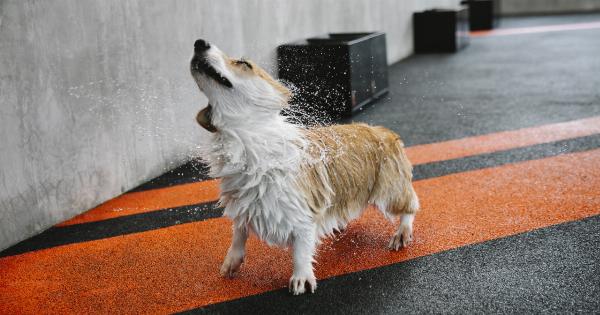Dogs have been living alongside humans for thousands of years, playing various roles and serving multiple purposes. They have come a long way from being hunters to becoming invaluable helpers in human society.
This article explores the evolution of dogs and their diverse roles in human society.
The Evolution of Dogs
The domestication of dogs is believed to have started around 15,000 years ago. Dogs evolved from wolves, and the process of domestication involved selecting and breeding wolves with desirable traits, such as loyalty, obedience, and a cooperative nature.
Over time, this led to the creation of various dog breeds with distinct characteristics and abilities.
Hunting Companions
Dogs were initially domesticated for their hunting skills. They accompanied early humans on hunting expeditions, assisting in tracking down and capturing prey. Their acute senses, speed, and agility made them valuable assets in the hunt.
Different breeds were developed for specific hunting purposes, such as retrieving, pointing, and herding.
Herding and Livestock Guardians
As humans transitioned from nomadic lifestyles to settled agricultural societies, dogs played a vital role in herding and guarding livestock.
Herding dogs, such as Border Collies and Australian Shepherds, have an innate ability to control and move livestock. They help gather sheep, cows, and other animals, ensuring their safety and efficient management.
Livestock guardian dogs, on the other hand, protect livestock from predators. Breeds like the Great Pyrenees and Anatolian Shepherds have been used for centuries to ward off wolves, coyotes, and other potential threats.
These dogs form a bond with the livestock they protect and act as a deterrent, keeping predators at bay.
Working Dogs
Over time, dogs began to serve humans in various working capacities. They were trained for tasks such as pulling sleds, carrying loads, and providing assistance in physically demanding jobs.
The Siberian Husky and Alaskan Malamute are examples of breeds historically used for sled pulling, transporting goods, and navigating snowy terrains.
In modern times, dogs continue to serve as working animals. They are employed by law enforcement agencies as police dogs, sniffing out illegal substances, tracking suspects, and providing protection.
Search and rescue dogs play a crucial role in locating missing individuals during disasters or other emergency situations. They are trained to detect scents and cover large areas efficiently.
Therapy and Service Dogs
Another important role dogs play in human society is as therapy and service dogs. These specially trained canines assist individuals with physical, cognitive, or emotional disabilities.
Service dogs provide invaluable support to individuals with visual impairments, mobility issues, and other disabilities. They can guide their handlers, retrieve objects, and perform various tasks to enhance their independence.
Therapy dogs, on the other hand, provide comfort and emotional support to people in hospitals, nursing homes, schools, and other settings. They help alleviate stress, reduce anxiety, and improve the overall well-being of individuals they interact with.
Therapy dogs are known to have a positive impact on mental health and contribute to the healing process.
Search and Detection Dogs
Dogs possess an incredible sense of smell, far superior to that of humans. This exceptional olfactory ability has led to the use of dogs in search and detection operations.
They can detect a wide range of substances such as drugs, explosives, and even diseases like cancer.
Drug detection dogs, commonly employed at airports and border checkpoints, help discover illegal substances and prevent their trafficking. Explosive detection dogs assist in locating bombs and ensuring public safety in high-security areas.
Dogs have also shown promise in detecting diseases like cancer by sniffing out specific volatile organic compounds associated with the illness.
Companionship and Emotional Support
A significant role of dogs in human society is their companionship and emotional support. Dogs have a unique ability to form deep bonds with their human counterparts.
Their unconditional love, loyalty, and companionship can greatly benefit individuals, especially those facing loneliness, depression, or anxiety.
Studies have shown that interacting with dogs can reduce stress levels, lower blood pressure, and increase feelings of happiness and well-being.
The presence of a dog can provide comfort during difficult times and help alleviate symptoms of various mental health conditions. Dogs truly become our best friends and trusted confidants.
Dogs as Family Members
In many cultures, dogs are considered cherished members of the family. They are no longer seen as mere helpers or tools but rather as beloved companions with whom we share our lives.
Dogs become integral parts of family routines, participating in activities, celebrations, and even vacations.
Conclusion
From their humble beginnings as hunting companions to their current roles as helpers in various fields, dogs have made an indelible mark on human society.
Their unwavering loyalty, intelligence, and diverse abilities have endeared them to humans across the globe. Whether in the workplace, on the battlefield, or in the comfort of our homes, dogs continue to be valuable partners and faithful friends.






























